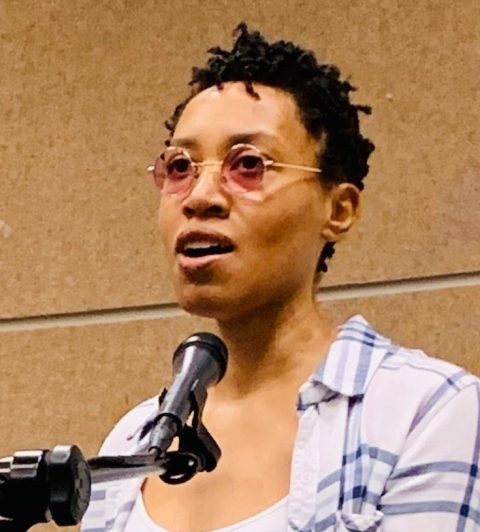
How is your experience so far as our Fall Quarterly Guest Editor? Do you have any thoughts on the kinds of stories you’ve found in the submission queue?
I love it! Fall is a busy teaching season for me, so it’s a bigger work load, but the work is a delight for sure. The structure of the workshop groups is really smart, so the participants have intimate discussions within their groups to keep things from becoming an overwhelming sprawl of input. The submissions have been very strong, and also informative when it comes to the collective consciousness of narratives and flash right now. There are far less dystopia stories than I imagined would be there. The strongest stories are the ones where a primary relationship is the central point of investigation. Add that to a compelling structure, voice and character and we have a winner!
You’re the founder and president of Live, Write, a nonprofit organization that offers free creative writing workshops for writers of color. Can you tell us more about this organization?
Yes, I started Live, Write in 2015 and it has been a source of community and affirmation for me ever since. The academic environment can be intentionally or accidentally hostile to the voices from artists of color. I had one former student in particular approach me with that concern and wanted to have an alternative approach to workshops where particular voices are not treated as anomalies but part of our collective existence. So, I started this program and people have gravitated to it ever since. We got a grant from California Humanities last year to expand by bringing in guest workshop leaders, and hope to continue doing so. The support from SLQ has been extraordinary, so thank you.
What books are on your fall reading list? Any favorites so far that you’d like to recommend to our readers?
I’m reading work with my graduate students. We pick contemporary fiction titles and vote for the top five to read together. We just finished There, There by Tommy Orange, which was an expected hit. We are going into wild genres with Girls of Paper and Fire next and finishing up with This is How You Lose the Time War (a sci-fi novella). I haven’t had a chance to read much flash in the recent months, but I’m a big fan of novels that resemble flash collections like We the Animals by Justin Torres and Department of Speculations by Jenny Offill.

 The core workshop of SmokeLong Fitness is all in writing, so you can take part from anywhere at anytime. We are excited about creating a supportive, consistent and structured environment for flash writers to work on their craft in a community. We are thrilled and proud to say that our workshop participants have won, placed, or been listed in every major flash competition. Community works.
The core workshop of SmokeLong Fitness is all in writing, so you can take part from anywhere at anytime. We are excited about creating a supportive, consistent and structured environment for flash writers to work on their craft in a community. We are thrilled and proud to say that our workshop participants have won, placed, or been listed in every major flash competition. Community works.